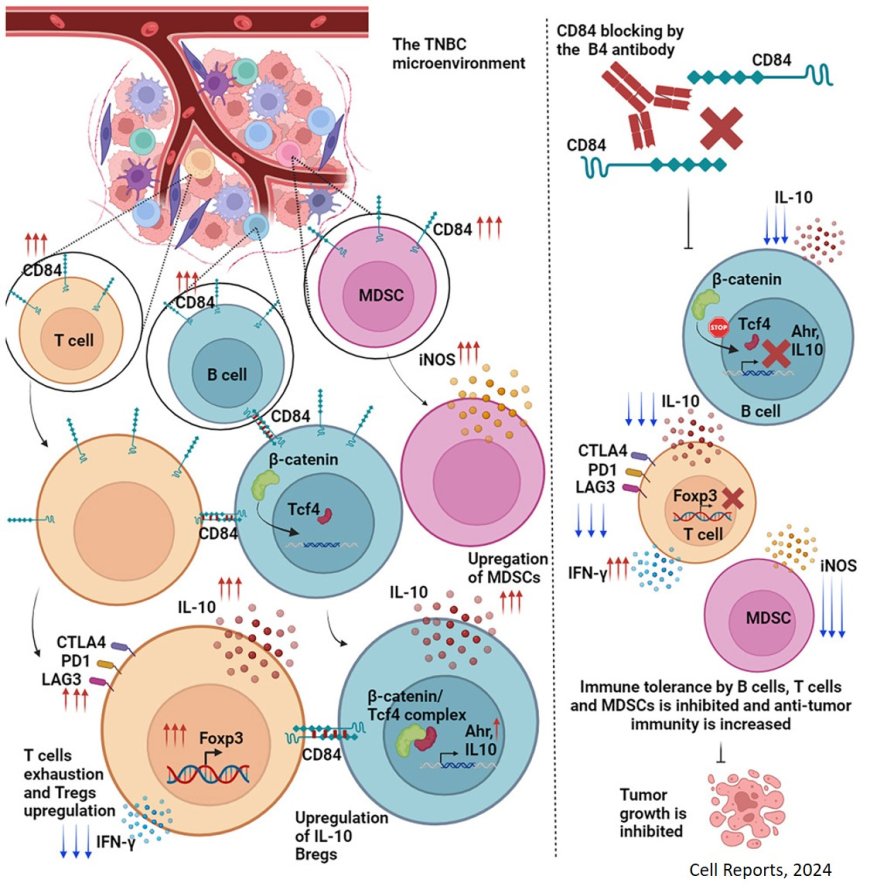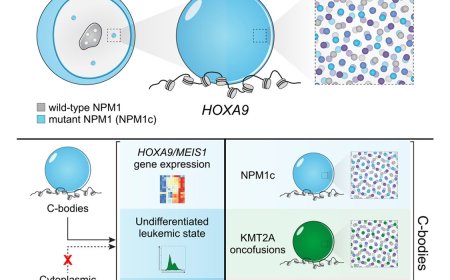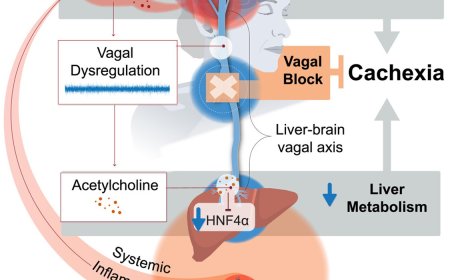Breaking immune tolerance in triple-negative breast cancer

“Build your enemy a golden bridge to retreat across” is a piece of advice offered by Sun Tzu in his ancient military treatise, The Art of War. It turns out that cancerous growths adopt this strategy in their battle against the immune system.
In a new study published in the journal Cell Reports, the researchers have discovered that a certain type of aggressive breast cancer prompts nearby immune cells to build “molecular bridges” between themselves, which causes these cells to refrain from attacking the cancer and leads to immune suppression. An antibody treatment that blocks the building of these bridges was shown to restore the immune system’s ability to attack with force, inhibiting the cancer’s progression in a mouse model.
In the past, cancer treatment focused on destroying the malignant cells by, for example, using radiation treatment or chemotherapy. In recent decades, however, it has become evident that a tumor’s development depends on the communication between the cancer and the nearby noncancerous cells.
In an earlier study, researchers showed that blood cancer cells create “molecular bridges” with nearby support cells in order to survive and proliferate – otherwise they die within a matter of days. The researchers identified a protein, CD84 (SLAMF5), that is used to construct these bridges: When this protein is present on the surface of a specific immune cell, it can bind to a similar protein on a different cell, creating an intercellular bridge.
In the type of blood cancer studied, CD84 is expressed in high quantities on the cancerous cells themselves, creating physical bridges between these cells and adjacent ones. The researchers even developed an antibody that blocks the bridges, slowing down the disease.
“We then wanted to see whether the molecular bridges between cells in the tumor’s microenvironment are also important in types of cancer other than blood malignancy,” the author says.
In the new study, the researchers analyzed the genetic sequences of growths taken from women with triple-negative breast cancer and discovered that the level of CD84 expression in the tumor microenvironment was much higher than normal. One of the surprising findings of the study was that even though breast cancer cells themselves express very low levels of CD84, they cause nearby immune cells to express it in large quantities and to create bridges between themselves, suppressing the immune response. The researchers also found that patients with higher levels of CD84 in their tumors did not survive as long as others.
Next, the researchers studied the progression of breast cancer in mice that had been genetically engineered not to express the CD84 protein and found that these mice developed significantly smaller growths. This finding prompted the scientists to test their previously developed antibody – which had successfully prevented the building of molecular bridges – as a treatment for breast cancer. Injections given twice a week to mice that had started developing breast cancer significantly slowed tumor growth and, in some cases, even led to complete recovery.
The researchers discovered that CD84 helps the cancer to develop by causing a buildup of cells that suppresses the immune response. They decided to focus on one of the cells that plays an unclear role in cancer – the regulatory B cell. They found that, like other immune cells, B cells build more “molecular bridges” in a breast tumor environment than in healthy tissue. The construction of the bridges causes these cells to produce a small protein that is known as a key suppressor of the immune response. When this protein is expressed in the tumor microenvironment, it is picked up by the immune system’s T cells – the warrior cells that are supposed to destroy the cancer cells – suppressing their activity and preventing them from attacking the tumor.
https://www.cell.com/cell-reports/fulltext/S2211-1247(24)01271-3













